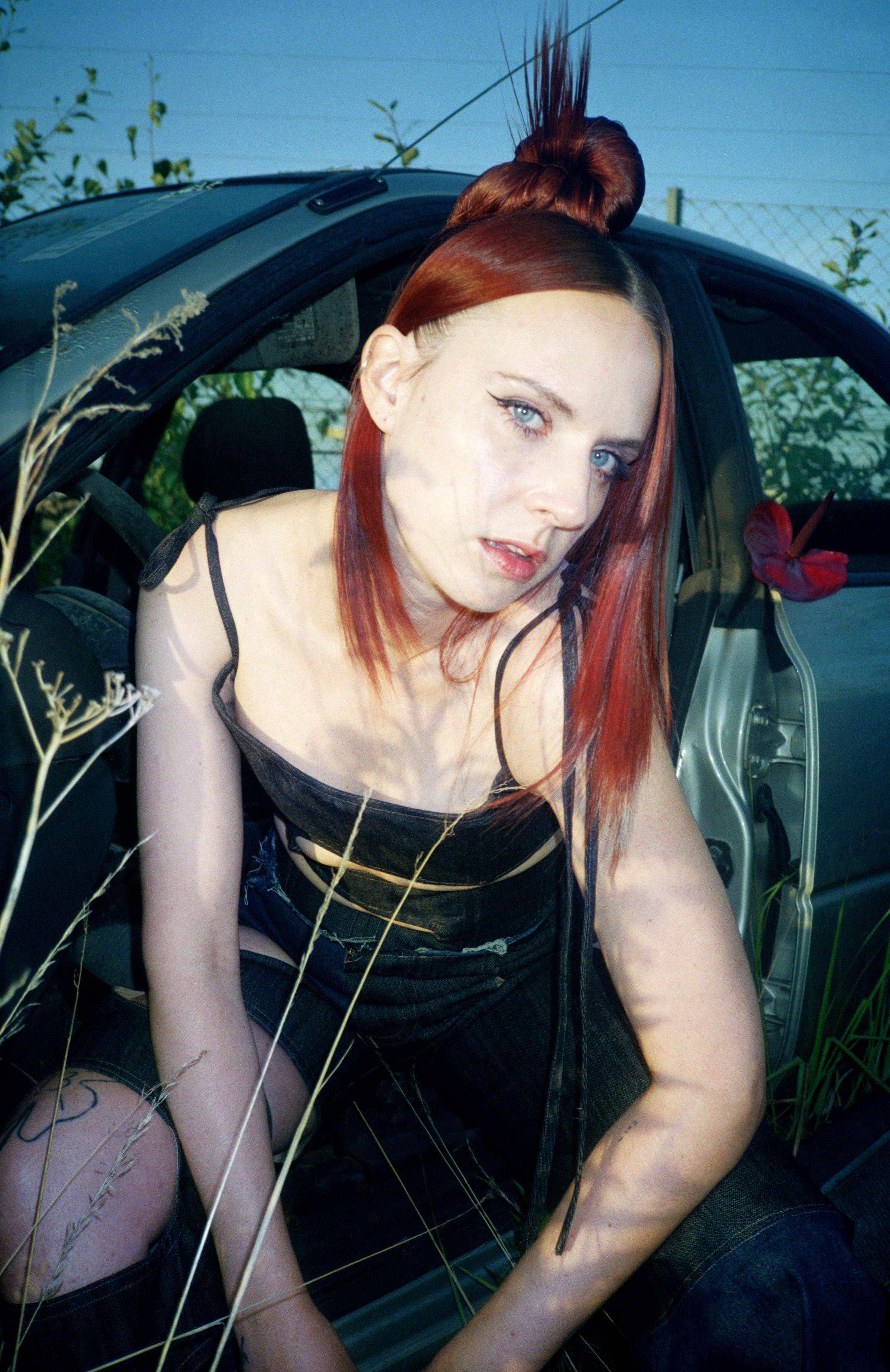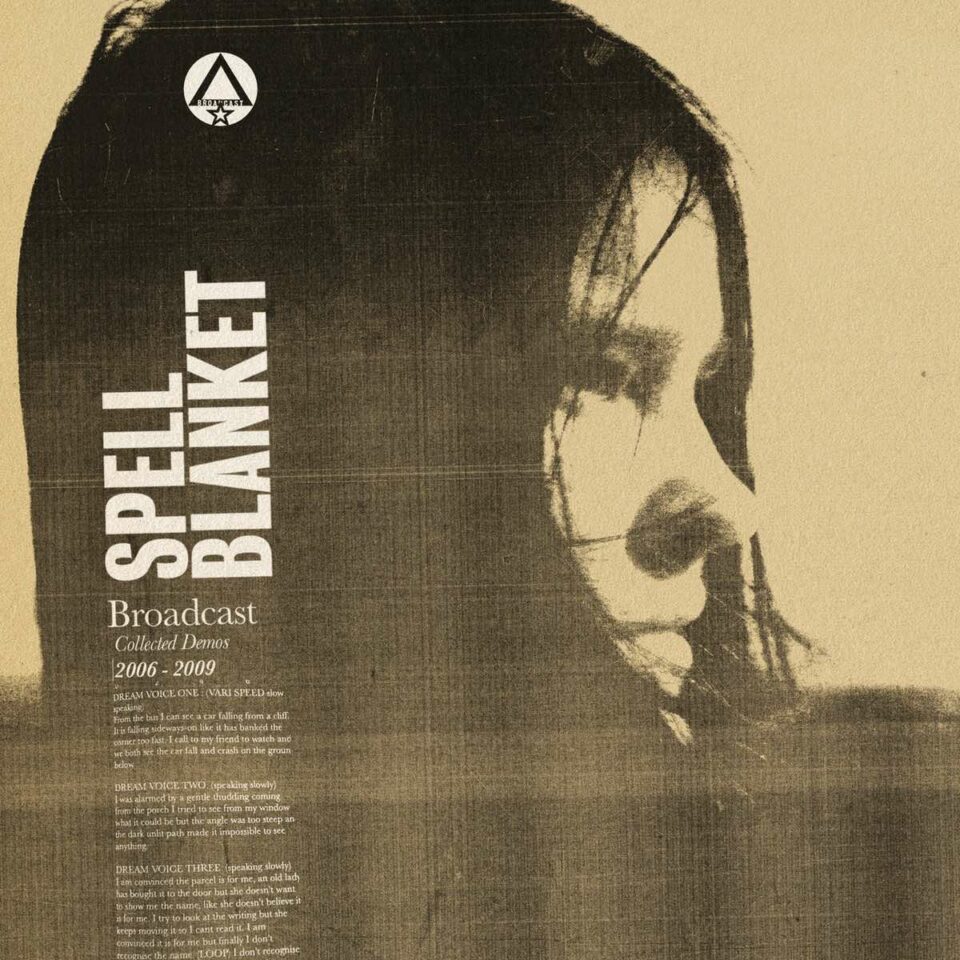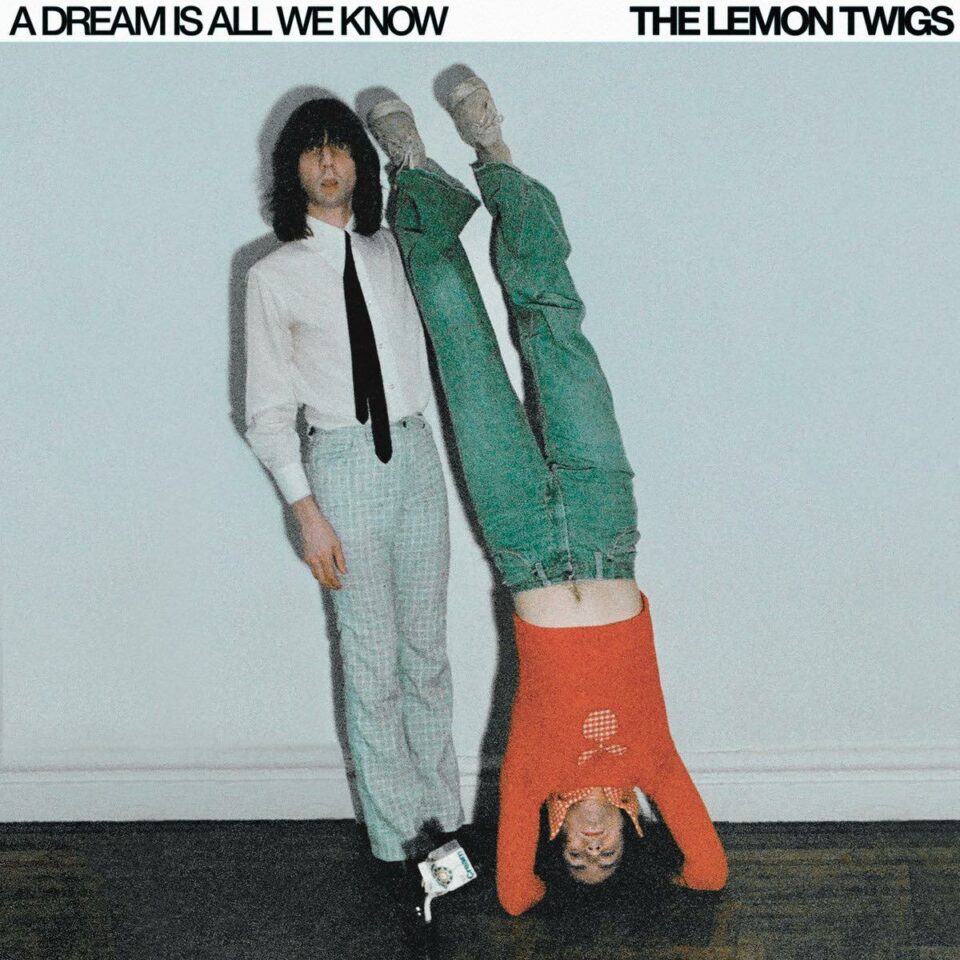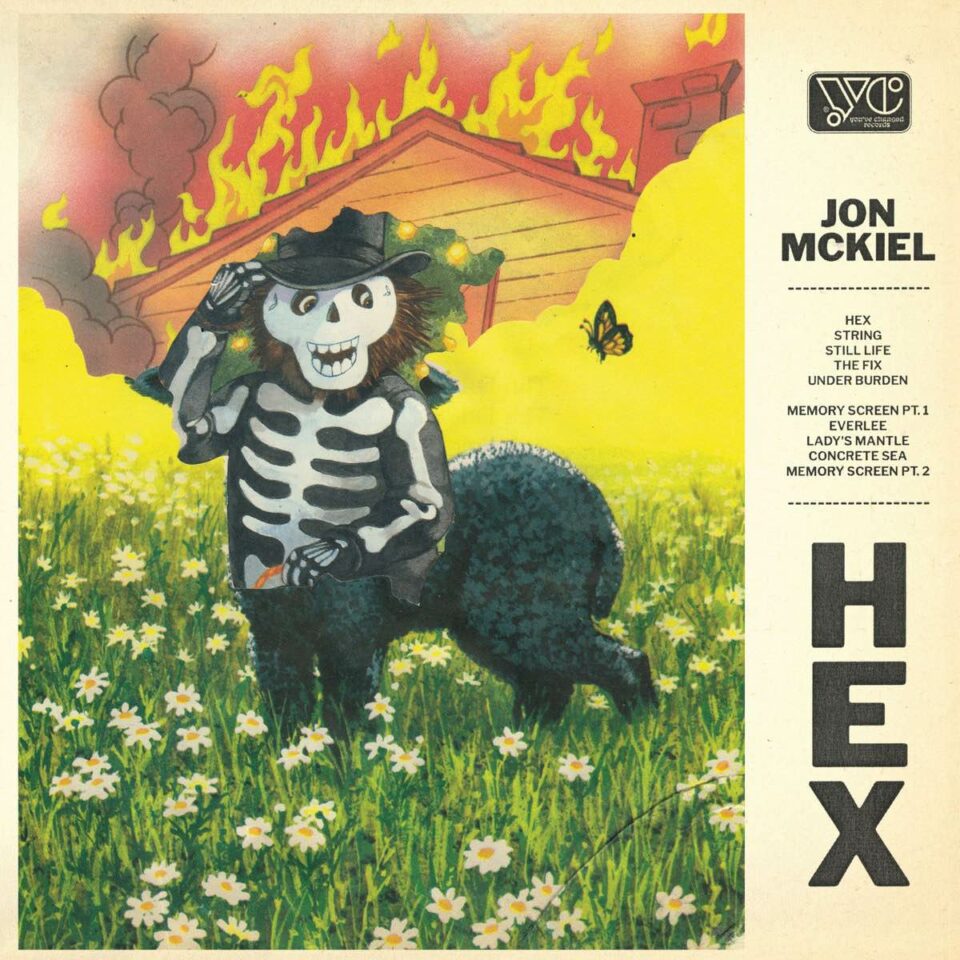Major Lazer and DJ Snake’s “Lean On,” featuring prominent vocals from Danish singer/songwriter MØ, undeniably took over the world in 2015. The trop-house EDM banger topped several countries’ charts, reached #4 on the Billboard Hot 100, and held the record for Spotify’s most-streamed song of all time for nearly a year—not too shabby for MØ’s first-ever global smash. But experiencing such monstrous success led the musician, born Karen Marie Ørsted, to push herself harder than ever, as she began touring constantly and frequently collaborating with renowned DJs (including Major Lazer’s Diplo) in hopes of scoring another hit. “I had never thought I’d be on a worldwide, massive hit song,” MØ tells me from her apartment in Copenhagen. “I come from Denmark, and very few artists make it outside [of the country], so I was just like, ‘Holy fucking Christ, this is a really fun adventure.’”
The 33-year-old artist’s warp-speed work ethic brought more successes her way, from 2016’s multi-platinum follow-up Major Lazer collaboration “Cold Water” with Justin Bieber to major festival performances and fruitful studio sessions with Charli XCX, Jack Antonoff, and the late SOPHIE. “Everybody working around me all of a sudden was like, ‘Fuck, this could get really big,’” she recalls. “We were all almost tumbling over each other trying to figure out what the next steps were going to be.” During the promotional cycle for her sophomore album, 2018’s Forever Neverland, MØ found herself accepting every opportunity she was offered and never taking a moment to slow down. However, working non-stop eventually led to the extreme anxiety and pure mental burnout that not only inspired her year-plus-long break from the industry but the ultra-introspective lyrics of her latest album, Motordrome.
Things were seemingly great for MØ in January 2019, as she’d recently released Forever Neverland and was about to embark on a tour. While preparing to perform “Blur” with Foster the People on The Tonight Show, however, she began to feel super strange. “I felt out of my body in a way, but I thought it was gonna pass. I've been stressed many times in my life, but it's always a passing phase,” she details. “But the day after we played Fallon I had a massive panic attack, and I was so scared. I'd never felt anything like that.” Sensing she needed to take some time off, MØ struggled to grapple with her responsibilities as the boss of her team as well as her impending tour dates. She began reevaluating the last few years of her career and realized she’d had fun exploring the mainstream pop world, but may have started overvaluing professional opportunities and lost sight of her natural artistic direction in the process.
“I was really trying to forgive myself and come to terms with the fact I had pushed myself so hard. If I'm sad about something, or if I'm going through something, songwriting helps me find the light. It’s been like that for me all my life.”
Feeling the need to make stark changes to her life at the end of 2019, MØ canceled tour dates, let some of her team members go, logged off social media, and moved back home to Denmark, hoping to reacclimate herself to life outside of studios and festival stages. During the break, she underwent and recovered from a long-anticipated vocal surgery and spent time baking, crocheting, and reconnecting with longtime friends. Despite stepping away from performing, MØ continuously wrote the songs that’d become Motordrome, which helped to make sense of her complex feelings of burnout. “I was really trying to forgive myself and come to terms with the fact I had pushed myself so hard,” she says. “If I'm sad about something, or if I'm going through something, songwriting helps me find the light. It’s been like that for me all my life.”
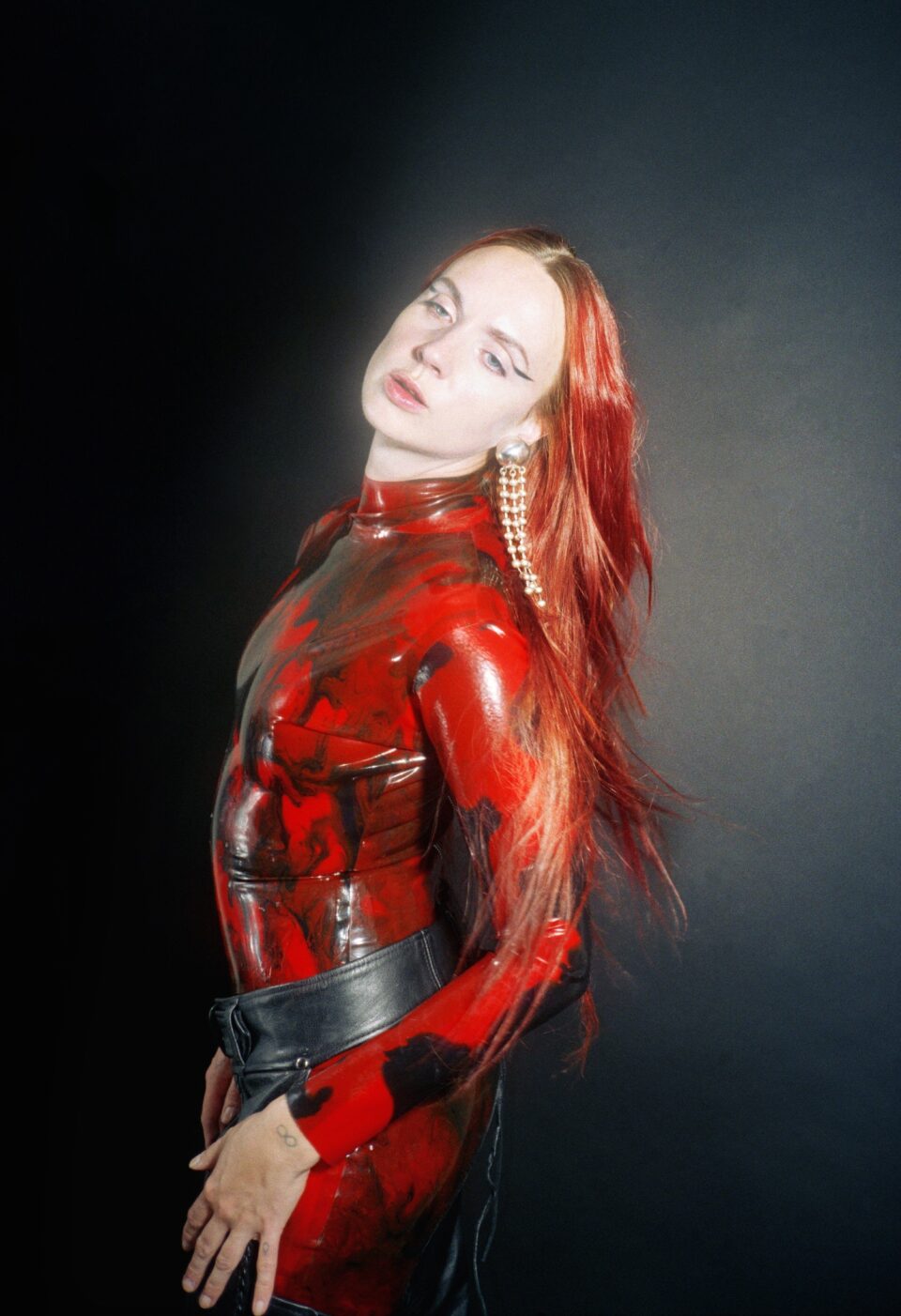
Amid the album’s writing phase, a reflective conversation between MØ and her mother put the musician’s emotions into perspective and inspired the album’s title in the process. “I was telling her how it felt inside of my brain, because my thoughts were going so fast. She said it sounded like a dødstrom, which is Danish for a ‘motordrome,’ or hamster wheel,” she explains. “You think you have to keep running to survive, even though that's not true, but when you're in it, you have tunnel vision.” A fitting metaphor for what she was going through, her mother’s thoughts sparked a confidence in MØ that led to the creation of “Live to Survive,” the uplifting lead single from Motordrome. “That was one of the first songs I wrote where I felt the energy turning in me. For a long time it had been this sadness or confusion, feeling broken in a way,” she says. “‘Live to Survive’ was the first one where I was starting to believe in myself a bit again. I’m like, ‘Fuck, I will get through this, I will forgive myself.’”
“This time around it was more of an internal dream about Motordrome being something people could really relate to rather than thinking it has to be a hit because I had this success.”
In order to accompany the album’s deeply intimate lyricism and not risk falling back into her chart-focused ways, MØ enlisted a tight-knit team of mainly fellow Scandinavian co-writers and producers to craft the gritty, rock-influenced sound of Motordrome. The album also doesn’t include any featured artists—another far cry from her highly collaborative discography. “I thought it would be nice to do something different,” she states before hinting at the possibility of other musicians appearing on remixes to come (“I would not rule that out,” she assures me). But perhaps the most notable difference between Motordrome and MØ’s previous work is that Diplo is nowhere to be found in the album’s credits, marking her first full-length project to not feature the hitmaker. “That's kind of sad,” she says, as if considering it for the first time. “But I would love to work with him in the future again.”
A 180-degree turn from the EDM pop lane she’s occupied for the last few years, the album feels slightly reminiscent of MØ’s history as a radical punk performer in the politically active band MOR a decade ago. While spending time in Denmark over the last year, MØ found herself reconnecting with her older material and leaning back into the sound that sparked her artistry. “I love dark, weird synths and guitars, and that’s what I wanted. It happened naturally,” she explains. “For many years after ‘Lean On,’ without me really noticing, I moved into this more electronic dance thing and I don’t know if that was ever the direction I wanted to go.”
If the music industry ever leaves MØ feeling disingenuous in her musicianship again, she can always fall back on her punk roots. In fact, speaking to Interview in 2017, the musician said she’d like to return to the scene sometime in her mid-30s. “I still stand by that statement, for sure,” she affirms, revealing she’d likely reunite with her MOR bandmate Josefine Struckmann Pedersen to form a new group with Swedish musician Elliphant. “In my mind I was like, ‘I’m going to do [another] punk band when I’m 37,’ so there’s still a couple of years before that.” It’d be an apt move for MØ, whose feelings toward success have drastically changed since experiencing burnout. “This time around it was more of an internal dream about [Motordrome] being something people could really relate to,” she says, “rather than [thinking] it has to be a hit because I had this success.”
MØ is about to tour the world for the first time since 2019, and she plans to avoid exhaustion by “playing fewer shows and having proper breaks between legs of the tour.” The musician still hopes her music reaches as many fans as possible, but she knows working herself to the bone won’t bring her any closer to accolades. “I’m ambitious and I'm hungry, but success for me is only success if you can really—with all your being—feel connected on a deeper level to the stuff you do,” she says. “It needs to feel real.” FL

